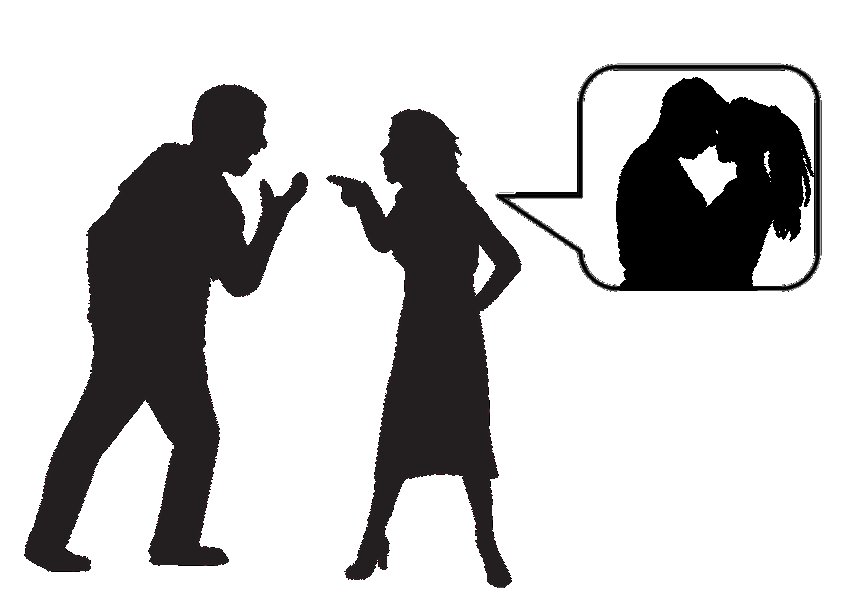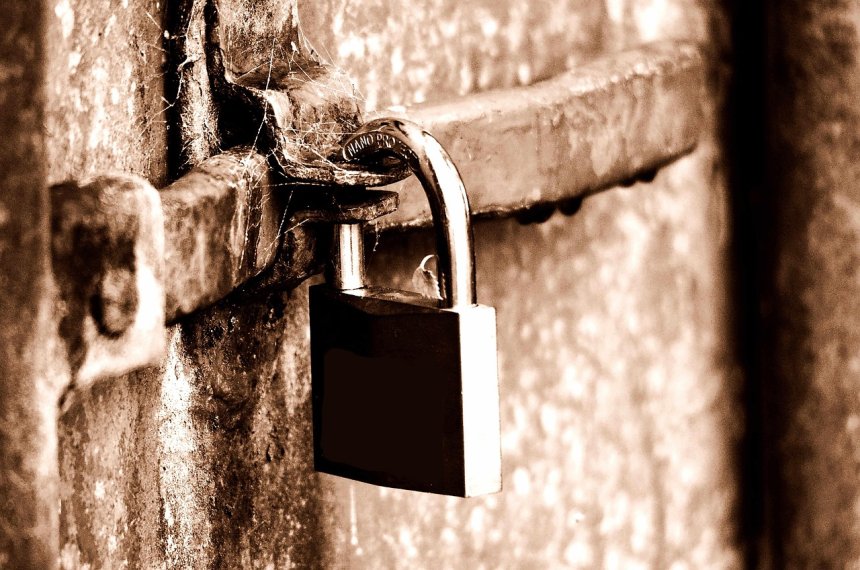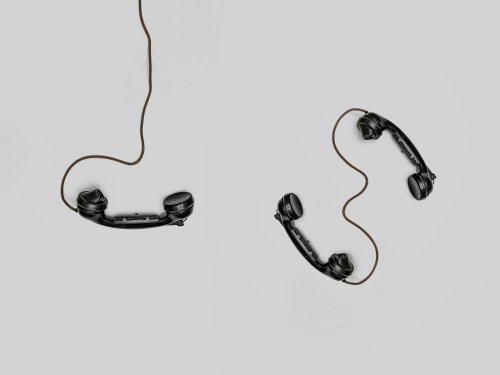The Worst Lies in a Relationship: How Betrayal Destroys Love & Trust
Discover the worst lies in a relationship and how deception, emotional betrayal, and lost trust slowly destroy love, intimacy, and connection.

Honesty is the foundation of every healthy relationship. It’s what allows love to grow, vulnerability to feel safe, and trust to flourish. When that honesty is broken, the bond between two people begins to erode—sometimes slowly, sometimes all at once. The worst lies in a relationship don’t always come wrapped in dramatic confessions or explosive revelations. They often take the form of subtle, repetitive lies that nibble away at trust until nothing but misery and uncertainty remain.
Dishonesty can seem like a way to shield oneself in a world where genuine love is so sought after yet rejection is so terrifying. Lying, particularly when uttered "to maintain harmony," undermines the very connection one is attempting to safeguard. Lying to one's partner builds an invisible wedge that deepens over time, whether it's about money, infidelity, sentiments, or just being one's authentic self.
In this article, we’ll dive deep into the worst lies in relationships, explore why people tell them, how they impact emotional intimacy, and what healing looks like when truth has been betrayed.

Understanding the Nature of Lies in Relationships
Many people think of lying as a discrete action, a single instance when one purposefully conceals the truth. Relationships, however, are rife with many fabrications. Some include one spouse consciously saying something false; this type of behavior is called a lie of commission. Some falsehoods are deliberate omissions of important facts. Then there are the deceitful acts of hiding one's emotions, which occur when a person hides their true feelings to avoid confrontation or rejection.
Some untruths are told without malice. A person may tell a lie out of fear of rejection, shame, or the consequences of being truthful. The impact of the deception remains unabated, regardless of the motivation behind it. Whether spoken from a place of fear or deceit, falsehoods undermine trust, the unspoken agreement that permits closeness to exist.
A couple's implicit expectations for one another include their honesty, the veracity of their statements, and the authenticity of their actions. Breaking that anticipation throws everything into disarray. Exactly what was accurate? An illusion? What was it? In many cases, the emotional fallout from learning of deceit is more devastating than the deceit itself.

Top 6 Worst Lies in a Relationship—and Why They Hurt the Most
Some lies sting more than others, but they all have their colors. The most damaging falsehoods in a relationship are those that wreak havoc on the foundations of honesty, openness, and trust. We detail the most damaging types of deceit and the damage they cause here.
1. The Lie of Infidelity
When one spouse betrays the other by emotionally or physically violating the vow of exclusivity, it is one of the most hurtful and damaging falsehoods a person can tell. To be unfaithful is to engage in betrayal, not merely in sexual relations. It's about putting one's own interests before that of one's spouse and deceit over openness.
By spreading false information regarding infidelity, a person betrays not only their partner's confidence but also their shared history, emotional safety net, and belief in love. Anxiety, self-doubt, intrusive thoughts, and symptoms similar to post-traumatic stress disorder (PTSD) are common after a traumatic event. The betrayed partner starts to doubt their own value and the affection of their lover.
Truthful communication, taking responsibility, and, often, therapy are all necessary steps on the road to recovery after infidelity. More crucially, though, it necessitates that the couple deal with the root cause of the lie.

2. Financial Lies and Hidden Debts
Honesty about money is essential to keeping a relationship alive, even though it can't purchase love. The serious breach of trust that results from financial deceit, like concealing expenditure, inflating income, or maintaining hidden accounts, is immense. This shows that one spouse isn't comfortable enough to be honest about their priorities and finances.
The stability of a relationship might be disrupted when one partner deceives regarding finances. The deceived partner often feels excluded from decisions that impact both partners' lives. It's about more than simply figures; it's about authority, dignity, and collective accountability.
Financial deception in marriages or long-term relationships can cause emotional distance, animosity, and legal trouble. The betrayal affects the house as well as the heart.
3. The Lie of Pretending to Be Someone You’re Not
In the beginning of a relationship, it's natural to want to put your best self forward, highlighting your positive traits while downplaying your negative ones and trying to fit in with your partner's interests. However, this becomes one of the most damaging lies when it evolves into chronic self-fabrication.
While it may make things easier in the beginning, pretending to have comparable interests, aspirations, and beliefs can sap the relationship's authenticity. As time passes, the truth unravels, revealing to both parties that they were deceived by a façade all along.
Since sincerity is essential for the development of genuine closeness, this form of deceit serves to emotionally isolate the two parties involved. If your lover has no idea who you are, they can't love you unconditionally.

4. The “I’m Fine” Lie
Falsehoods can be subtle as well as blatant. Even subtle deceit can sometimes cause significant damage. Saying "I'm fine" when you're really upset, furious, or nervous may seem harmless, but it actually creates barriers rather than bridges.
Relationships thrive and remain authentic when both partners are emotionally honest. Communication becomes strained when one spouse consistently represses their feelings. Even in a committed relationship, one partner's confusion, rejection, or isolation can lead to feelings of loneliness for the other.
Silent animosity festers over time. When two people are physically close yet emotionally distant, their relationship starts to feel empty. An insidious poison of connection, the "I'm fine" lie destroys closeness through quiet rather than explosive outbursts.
5. The “I Love You” Lie
Saying "I love you" without genuine feelings is one of the most emotionally draining lies you can tell. The distortion of one of the most sacred expressions in a relationship occurs when one party says something false, whether to avoid conflict, manipulate, or just out of habit.
When love is used as a tool instead of a truth, it can cause confusion and emotional dependence. The other person puts their faith in an imaginary connection and puts their energy into a relationship that doesn't exist.
When the truth comes out, this kind of deceit destroys trust and causes severe psychological suffering. It weakens faith in future love and makes it more difficult to discern sincere affection.

6. Lies About the Future
Genuine promises are lovely, but only when kept. One of the most heartless types of deceit is making empty promises about the future, like marriage, change, or shared goals, and then not delivering on those promises.
As a result, the other person becomes emotionally attached to a hope that is unrealistic and never going to materialize. These lies are manipulative because they bind the partner in the hope that they will stay stuck or not make any decisions on their own.
After these assurances are subsequently reneged upon, the one who has been duped feels both naive and devastated. They mourn the loss of the love and the future they had hoped for.
The Psychological Toll of Dishonesty in Relationships
There are far-reaching emotional repercussions to lying. Lying warps not only the truth but also one's perception, reality, and sense of self-worth. Hypervigilance, trust problems, and trauma bonding—a condition in which a partner develops a psychological attachment to their abuser—are all outcomes of chronic deceit.
Deceit also hinders the ability to communicate. When deceit starts, partners stop being honest with each other. When one person starts to hide from the truth, the other person starts to feel bad, and soon they are both alone emotionally. What was once a smooth connection is now fraught with tension and doubt.
Additionally, the essential feeling of emotional security that love necessitates is weakened by deceit. When someone says they love you, but you don't trust them, it's hard to feel loved. Exposure vanishes when danger is not present. Intimacy can't endure if one isn't vulnerable.

How Lies Damage the Foundation of Love?
An untrustworthy relationship can endure for some time, but it won't last forever. Instability, animosity, and emotional distancing are the results of lying. Even a partner who is willing to forgive will eventually feel disconnected and disrespected.
When dishonesty takes the place of honesty on a regular basis, the relationship goes from being a partnership to being a show, with both partners playing their parts rather than being themselves. An emotional connection that was once strong starts to feel superficial. When trust is broken, every smile or gesture can feel like a betrayal.
Lying in relationships is tragic because it usually stems from fear—fear of rejection, disagreement, or being known for who you really are. Unfortunately, the same things that lying aims to avoid—rejection, loss, and estrangement—are the results of telling them.

Rebuilding After Lies: Is Trust Possible Again?
It is possible to rebuild trust after betrayal, but it is a challenging and lengthy process. Radical candor, emotional responsibility, and persistent work are essential. The dishonest spouse must be ready to apologize, confront unpleasant realities, and pledge to be entirely and permanently honest.
Anger, anguish, confusion, and loss are all valid feelings for the deceived partner to experience. Healing can only commence once these emotions are processed. Forgiveness is not forgetting or excusing; it is freeing oneself from betrayal.
Time, communication exercises, and therapy can aid in mending relationships, but they will only be effective if both spouses are willing to put in the necessary effort. It may be best to just walk away if lying keeps happening and no one ever takes responsibility.

Conclusion
Trust is the essence of love. Without it, not even a common past or intense attraction can last. When one partner in a relationship tells a falsehood that makes the other feel unsafe being themselves, it's the worst lie ever. Affection becomes worry, and intimacy becomes insecurity because of them.
Telling the truth, even when it hurts, is always respectful. "I respect you sufficiently to tell you the truth," it states. "I value my comfort more than your clarity," is the message that lies convey. Every relationship's destiny and quality are determined by that disparity.
The truth may sting, but lies ruin, so keep that in mind if you've been the victim of deceit. If you lied, you can always be honest, take responsibility, and start over. Truth isn't merely the cornerstone of love; it constitutes the very structure itself. Without it, the entire system crumbles.
Share
What's Your Reaction?
 Like
0
Like
0
 Dislike
0
Dislike
0
 Love
0
Love
0
 Funny
0
Funny
0
 Angry
0
Angry
0
 Sad
0
Sad
0
 Wow
0
Wow
0














